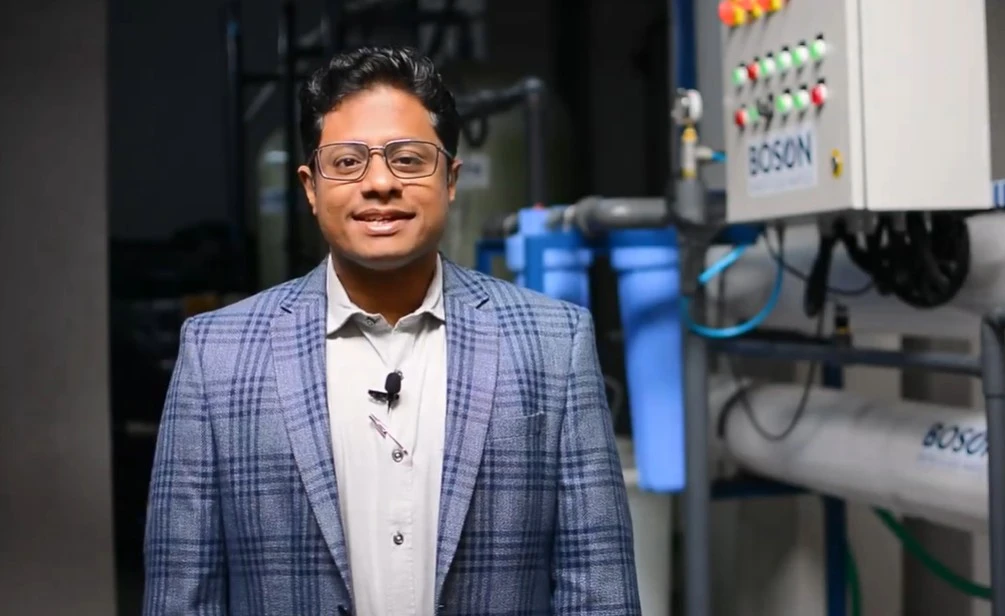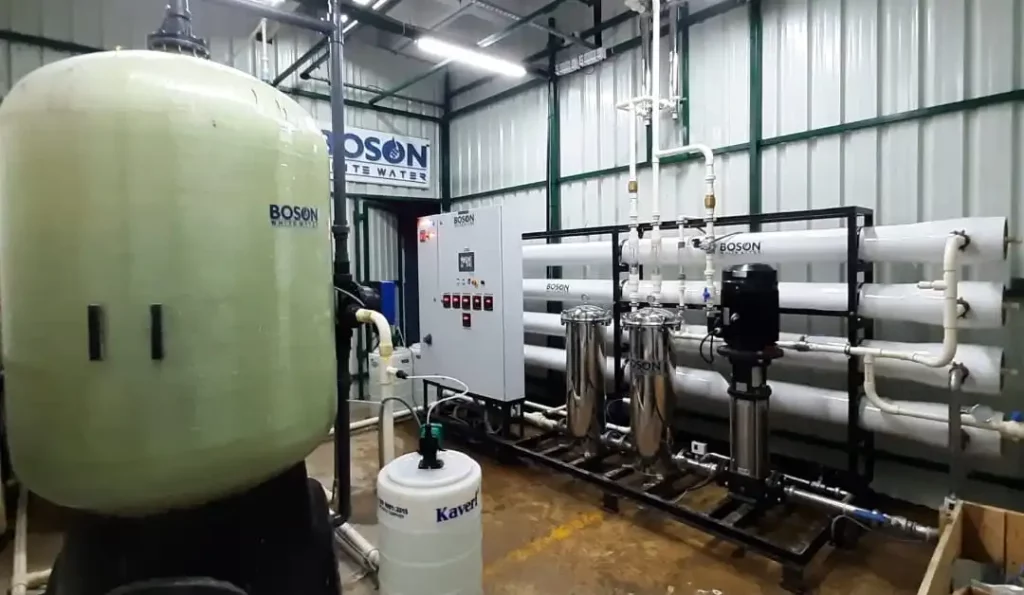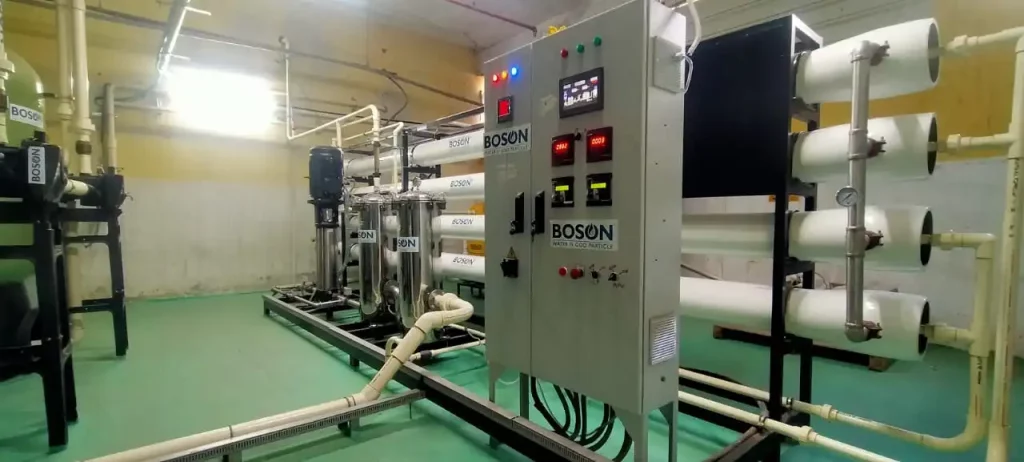(November 19, 2025) The seed of bringing a change is often planted in a moment of discomfort. For Vikas Brahmavar, CEO and Co-Founder of Boson Whitewater, that moment arrived not in India, but along the banks of the Thames. After moving to London for a five-year stint in investment banking on the software side, he found himself constantly drawn to the city’s rivers and streams, not for leisure, but for what they revealed.
“I was struck by how clean and well-managed urban water bodies there felt,” he recalls. “Rivers, streams, even the water infrastructure, everything worked.” Having grown up between Bengaluru and Salem, where water scarcity was a lived reality and pollution a painful norm, the contrast unsettled him. “It struck me that clean water that seems ‘normal’ here is a luxury back home,” he shares with Global Indian. “And that contrast stayed with me.”
One day, during a walk by the Thames, the growing unease crystallised into purpose. “I remember thinking that if this were Bangalore, would this river still be here? Would it be safe?” That thought marked the turning point. Water scarcity, he realised, was not just about natural shortage but how societies value, treat, and reuse water. “This discomfort couldn’t just be a personal observation,” he says. “It had to become a mission to build a system that made water circular, sustainable, and abundant.”

Vikas Brahamavar
Modest beginnings to Zerodha’s ₹10 crore funding
When he eventually returned to India, Vikas stepped into what he calls “one of the hardest sectors” in the country and that was urban wastewater management. He laid the foundation of Boson Whitewater with co-founder Gowthaman Desingh. The venture demanded patience, resilience, and the ability to look beyond daily setbacks. “Working towards improving water infrastructure in a big city like Bengaluru requires a long-term commitment. Change does not happen overnight,” Vikas says. Boson began modestly with recycling water in a single apartment community. But “every small win added real momentum,” he says, reinforcing the belief that climate action is a long game, one that demands consistency more than glamour. “If you really want to bring about change, you need to keep at it every single day.”
To expand sustainable water management operations and help Indian cities manage water more responsibly, recently, Boson Whitewater secured ₹10 crore in funding from Rainmatter Foundation, Zerodha’s climate-focused initiative.

Boson Whitewater Co-Founders Vikas Brahmavar and Gowthaman Desingh
Building trust in the industrial sector
Boson Whitewater is known for its intensive 11-stage filtration system and IoT-based transparency platform, but convincing industries to trust recycled water hasn’t been easy. Decision-makers instinctively equate wastewater with something dirty and unsafe, Vikas explains. The skepticism persists even after the technology is described. So Boson decided early on that trust would have to be engineered, not assumed.
“Transparency is key,” the entrepreneur stresses. Their IoT-based monitoring system gives customers real-time visibility on parameters like TDS, pH, and ORP. “We often walk our customers through these dashboards, show them lab reports, and even build user interfaces so that they can see how the water quality is maintained.”
The questions they encounter range from hesitant to humorous. “Some worry if the water is safe for non-potable use. Others ask, ‘Can I drink this?’” he shares. The answer is, ‘yes, it’s clean enough to meet IS 10500 drinking water standards, but their mandate is non-potable reuse.’ The bigger challenge is educating that free borewell water is not for industrial use. “If borewell water is available, people ask why they shouldn’t use it. There’s very little awareness that using groundwater or fresh water for industrial purposes like cooling towers is illegal.”

Boson-Industrial RO-150k
Despite the challenges, more than 25 large industries across Bengaluru today rely on Boson’s treated water which is about 12,36,000 litres every single day. Cooling towers, boilers, semiconductor units, electroplating lines, industrial processing facilities, and even laundries now run on high-quality, low-TDS (<75 ppm) “whitewater” generated from the excess treated wastewater of apartment complexes.
The Apartment Puzzle: Awareness, misconceptions, and legal blindspots
If industries bring one kind of hesitation, apartment communities present another. Vikas Brahmavar says most Resident Welfare Associations are completely unaware of the scale of illegal discharge happening under their watch. “They think they’re using all their excess STP-treated water for gardening, but gardens don’t need more than 5,000 litres per acre. Many apartments have 10 times the excess water available.” That extra water is unknowingly diverted into the drain, which is unlawful.
Boson’s first task is often education. “We communicate clearly that this is tertiary treatment, not raw sewage. We only take water that already meets STP discharge norms.” Then comes the worry about cost, maintenance, and space. To address this, Boson designed a model that eases the burden on communities. “Our business model is OPEX (operational expenditure), not CAPEX (capital expenditure). Apartments don’t pay upfront; they only pay for the water consumed. Our investment helps them become legally compliant over time.”

Boson Whitewater’s water treatment facility
Future-Forward: From IoT innovation to a circular water economy
With the backing of the Rainmatter Foundation by Zerodha, Boson is now accelerating its next phase of growth. Over the next two years, the company plans to expand into Hyderabad, Chennai, and Coimbatore. These are the urban centres where STPs exist but their effluence often goes unused. An upgraded IoT platform is also in the works. “We’re enhancing predictive analytics and maintenance, real-time metrics, anomaly detection, and energy optimization,” Vikas says. The vision is to have a system so intelligent that it reduces OPEX while making whitewater delivery even more reliable.
But the larger ambition is structural. Boson is pushing for a decentralized circular water economy, one where apartments, tech parks, and industries form a networked “third source” of water, independent of borewells and municipal supply. “It’s about building a system where water is circulated as close as possible to where it is generated,” he says.
If Bengaluru could be rebuilt from scratch
Ask Vikas Brahmavar what Bengaluru’s water ecosystem needs most urgently, and he pioints towards a structural overhaul. “We should make wastewater recycling mandatory,” he says. The current system mandates treatment but not reuse. “It’s seen as a compliance issue, not an economic or environmental opportunity.”
The second structural reform he proposes is logistical by creating a mechanism to match apartments that generate treated wastewater with industries that need it. “Bengaluru treats a large volume of wastewater, but most of it is discharged because there’s no simple way to transport it for reuse. If we can map industries to nearby apartments, it becomes a practical, local loop that drastically reduces freshwater dependence,” he remarks.
Finally, he advocates for decentralization. “Every apartment and tech park should have a closed-loop system with on-site tertiary treatment and real-time monitoring. This would reduce transport costs and ensures water is always circulated locally.”
A mission that began with a river
From walks along the Thames to the challenge of urban wastewater in one of India’s fastest-growing cities, Vikas Brahmavar is working towards a change that often disturbed him abroad. Clean rivers in London became a catalyst for him to act back home.
Today, as Boson Whitewater helps industries and communities rethink water reuse, Vikas Brahamavar is steadfast on the mission with which he started. “Every small win keeps us going,” he says. “If we want to solve climate issues, we have to be ready to play the long game.” And that game, he believes, has only just begun.
ALSO READ: For H-1B workers wondering ‘what if?’: Inspiring journeys of founders who returned to India



